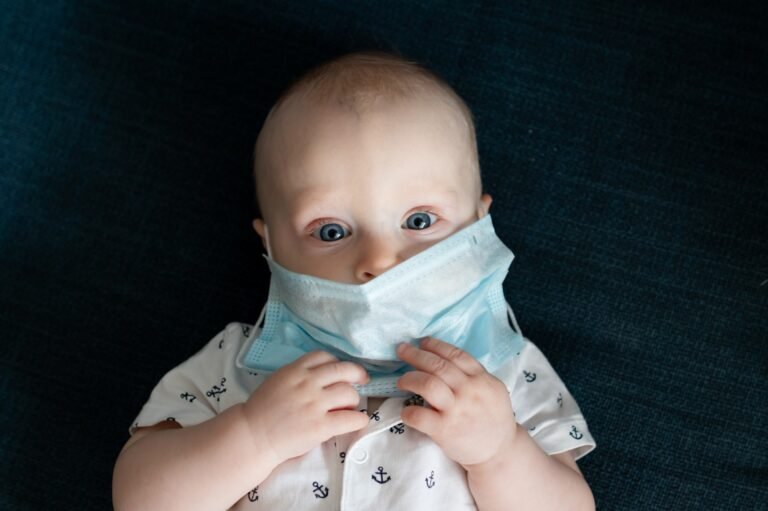While infants appear resilient to COVID-19, this new study highlights how socioeconomic factors, not the virus, may play a larger role in developmental outcomes.
Study: Association between SARS-CoV-2 infection before the age of two years and child development. Image credit: Nina Aleksandryuk / Shutterstock.com
A recent study published in the journal Pediatric Research assesses the potential impact of severe acute respiratory syndrome coronavirus 2 (SARS-CoV-2) infection on cognitive development in children aged two years and younger.
How does COVID-19 affect children?
Initially, SARS-CoV-2 was highly virulent in adults, with children usually showing mild or no symptoms. However, the emergence of the Omicron SARS-CoV-2 variant has led more diverse populations to experience symptoms following infection, with respiratory symptoms and fever being more commonly seen in younger populations.
At the same time, the incidence of coronavirus disease 2019 (COVID-19) and post-COVID-19 conditions has increased, particularly among adults and adolescents. Cognitive difficulties are widespread among people with long-term COVID-19, even those who experienced mild symptoms during infection.
Since children infected with newer variants of SARS-CoV-2 are more likely to develop symptoms than children infected with earlier strains of the virus, it is important to assess how cognition may be affected after recovery from the virus. COVID-19.
About the study
In the current study, researchers are evaluating the impact of COVID-19 on development in children under two years of age. This study was conducted in a pediatric outpatient clinic in southern Thailand, enrolling children aged between 18 and 24 months.
Children diagnosed with COVID-19 before February 2022, as well as those with epilepsy or documented developmental delays, were excluded from the analysis. The Thai version of the Ages and Stages Questionnaire (ASQ)-3 was administered during scheduled health check-ups.
The primary outcome was the ASQ-3 score, which assesses the child’s development in five domains: problem solving, personal-social, communication, fine motor, and gross motor. Caregivers rated items in each domain and reported the child’s ability to perform the task as “yes,” “sometimes,” or “no,” which were scored as 10, five, and zero, respectively.
Children with an ASQ-3 score of two or less and those who completed learning activities and attended assessments close to this value were advised to undergo additional developmental assessments. COVID-19 status was confirmed if the study participant experienced symptoms or was in close contact with a case of COVID-19 and tested positive for SARS-CoV-2 by reverse transcription polymerase chain reaction (RT-PCR) assay or antigen test .
Correlations between variables were tested using the Fisher’s exact or chi-squared test for categorical variables and the Mann-Whitney U test for continuous variables in univariate analysis. Associations from categorical and continuous outcomes were further tested using logistic and quantile regression, respectively, in multivariate analyzes adjusted for covariates.
Study findings
A total of 535 participants aged between 17 and 23 months were included in the present study, 45.8% of whom had a history of COVID-19. Questionnaire data were available for 336 participants, 53.6% of whom had been diagnosed with COVID-19. Univariate analysis identified a significant association between COVID-19 status and socioeconomic status.
Income and education levels of primary caregivers were significantly higher in the COVID-19 group. In the COVID-19 group, about 97% of study participants experienced symptoms, with fever reported in over 94% of patients.
More than two-thirds of patients had upper respiratory tract infections. Only one patient with COVID-19 had abnormal findings on chest X-ray.
The median age at the time of SARS-CoV-2 infection was 1.3 years, and the median duration of infection before assessment was 193.5 days. No significant associations were observed between COVID-19 status and ASQ-3 scores at the 18-month assessment.
In comparison, problem-solving scores were lower among those with a history of COVID-19 at the 24-month assessment. However, this association was not statistically significant.
conclusions
The current study found no evidence to suggest that SARS-CoV-2 infection in children under the age of two increases the risk of developmental delays an average of six months after infection.
Significant differences in socioeconomic status were observed between the COVID-19 and non-COVID-19 groups. Additionally, occupations involving collaborative spaces were common among caregivers of children with COVID-19. In comparison, caregivers of those without COVID-19 were more likely to be unemployed or business owners.
Notable limitations of the current study include the lack of data on in-utero COVID-19, potential misclassification of COVID-19, reporting bias as the ASQ-3 is parent-reported, and lack of assessments of subtle neurodevelopmental changes such as executive function.
Journal Reference:
- Tassanakijpanich, N., Chumchuen, K., Worachotekamjorn, J., & Laoprasopwattana, K. (2024). Association between SARS-CoV-2 infection before the age of two years and child development. Pediatric Research. doi:10.1038/s41390-024-03614-5
